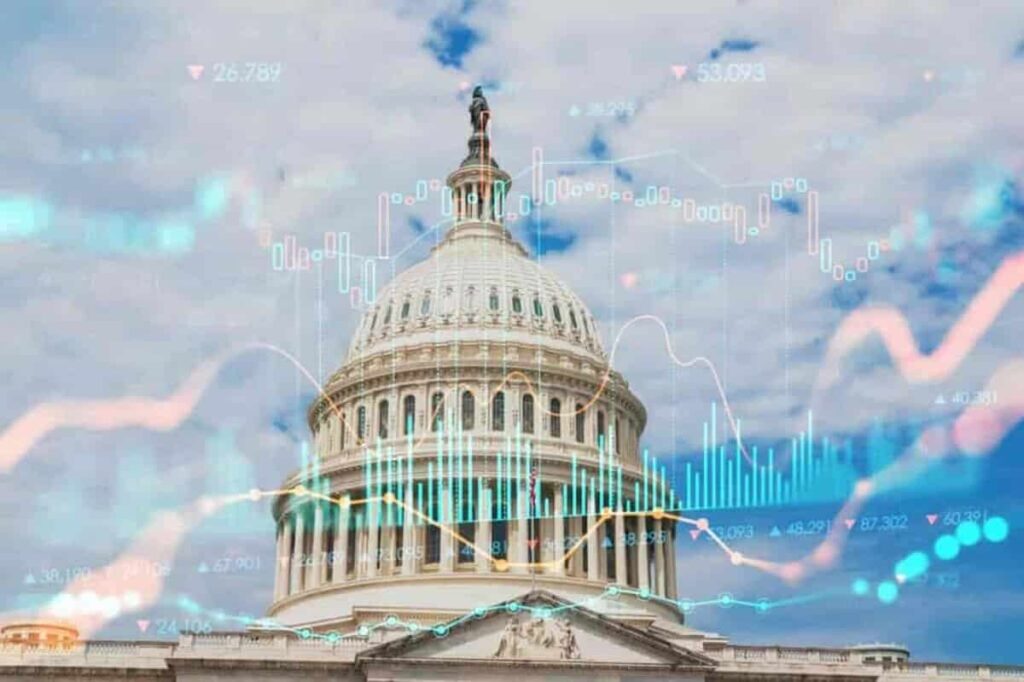In the realm of financial activities, the trades made by public officials often draw significant attention due to their potential implications and the ethical considerations they raise. The recent flurry of trades by North Carolina Representative Tim Moore has become a focal point in this discussion. Moore’s trades, involving substantial sums in leveraged ETFs, have prompted speculation and scrutiny. This article delves into the specifics of these trades, exploring the potential motivations and the broader implications for investor trust and regulatory practices.
Tim Moore’s ETF Trades: Implications and Speculations
Investment Moves by a Public Official
The recent filings submitted by Representative Tim Moore have revealed a series of high-stakes trades totaling up to $380,000. These investments are primarily concentrated in Direxion’s Daily Small Cap Bull 3X ETF (TNA), as documented in public records dated August 4, 2025. The transactions took place over four consecutive days in July, with each installment ranging from $15,001 to $50,000. Should these filings reach their upper limit, they suggest $200,000 was invested solely in TZA purchases.
These trades, tracked by Finances Zippy’s political stock trading database, showcase the proactive investment strategies employed by Moore, aiming to leverage market conditions effectively.
Understanding the ETF Discrepancy
A notable point of confusion arises from the documentation referring to TNA, traditionally a bullish ETF, while using the ticker TZA, which signifies a bearish stance through Direxion’s Bear 3X ETF, designed to profit when small-cap stocks decline. This contradiction raises questions about whether Moore intended a long or short position or if the discrepancy results from a clerical error.
Clarifying the Role of Leveraged ETFs
Leveraged ETFs like TNA and TZA are high-risk instruments typically employed for short-term market bets. These ETFs amplify exposure to market movements and are often utilized by institutional investors to hedge against volatility or capitalize on abrupt market changes. Moore’s aggressive approach is unusual for a lawmaker, prompting discussions about the appropriateness and intent of such trades.
Interpreting Possible Motivations
There are theories suggesting that Moore’s investments might not signify a bearish outlook on the economy. Instead, they could represent a strategic hedge against potential changes in monetary policy. According to online speculation, these trades might be a response to expectations that the Federal Reserve will maintain, rather than cut, interest rates—a scenario that could adversely impact small-cap stocks if lending conditions tighten.
Need for Enhanced Financial Transparency
The inconsistencies in Moore’s filings highlight the necessity for more stringent financial disclosure requirements for elected officials. Enhanced transparency would not only clarify the intentions behind such high-profile trades but also bolster public confidence in the ethical standards upheld by governmental representatives.
FAQs on Financial Practices of Public Officials
Why are leveraged ETFs considered risky investments?
Leveraged ETFs are designed to provide amplified exposure to index movements, which can lead to substantial gains or losses. They are typically used for short-term trading rather than long-term investments due to their complexity and the potential for significant volatility.
What are the ethical considerations when lawmakers engage in stock trading?
Lawmakers have access to non-public information that could influence market conditions, raising ethical concerns about insider trading. Transparency and disclosure are crucial to prevent conflicts of interest and maintain public trust.
How do financial transparency rules impact public officials?
Financial transparency rules require officials to disclose investment activities, promoting accountability and reducing the risk of misconduct. Stricter regulations ensure that officials act in the public interest rather than for personal financial gain.
In conclusion, the examination of Tim Moore’s ETF trades not only sheds light on his individual investment strategies but also underscores the need for rigorous transparency standards to uphold the integrity of financial practices among public officials. These measures are vital for maintaining trust and ensuring that actions taken by those in positions of power are aligned with the public’s best interests.

